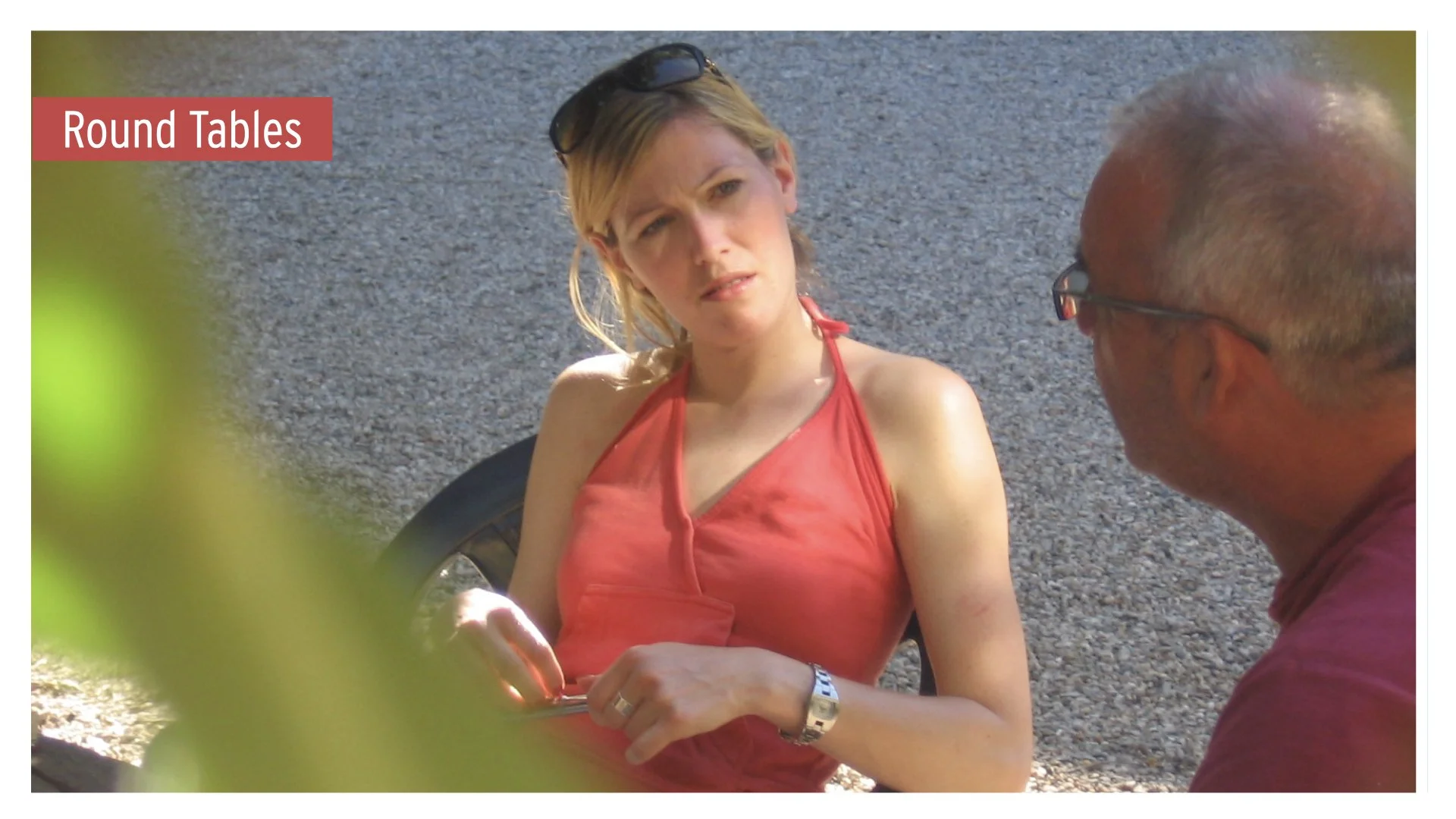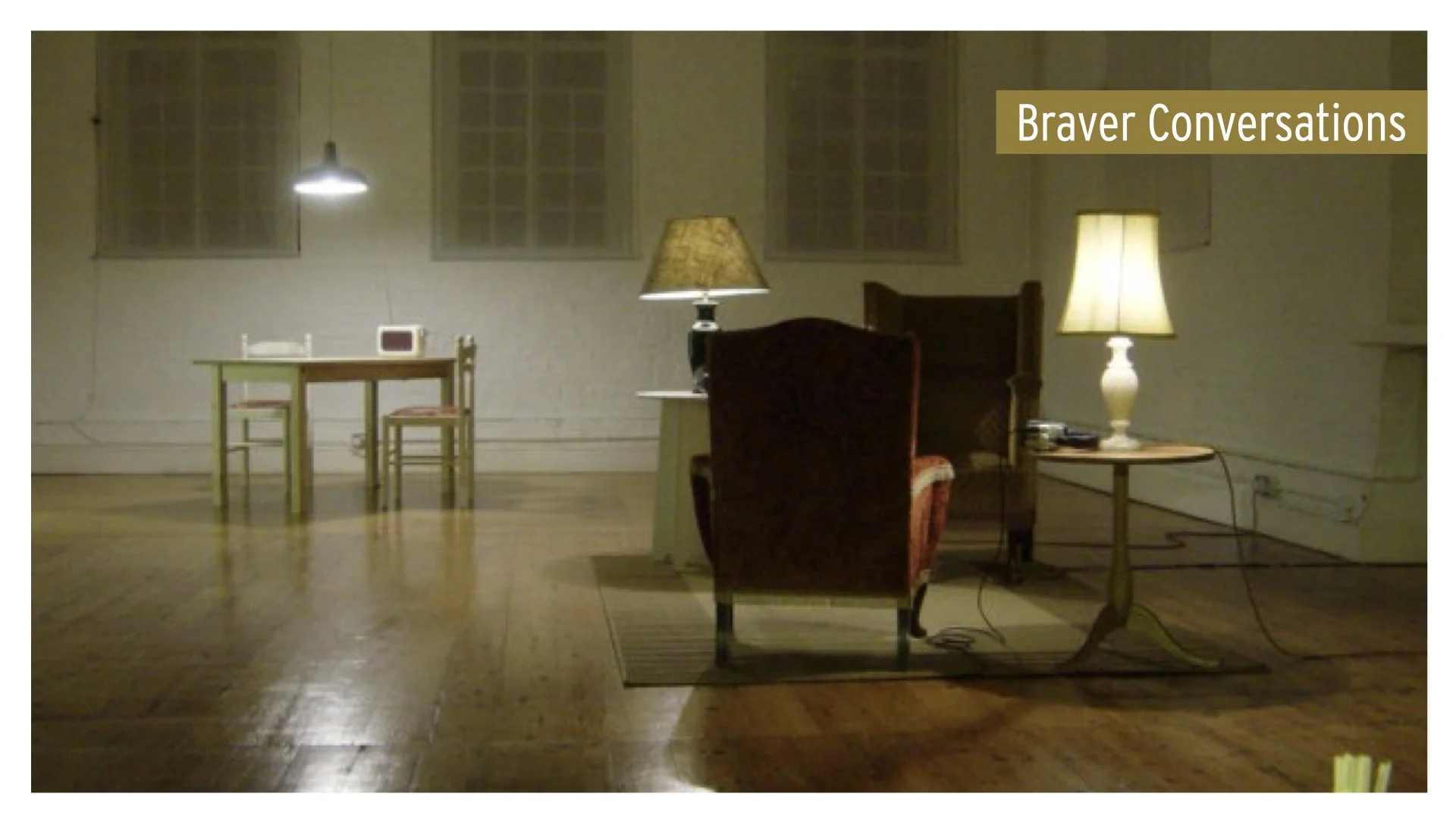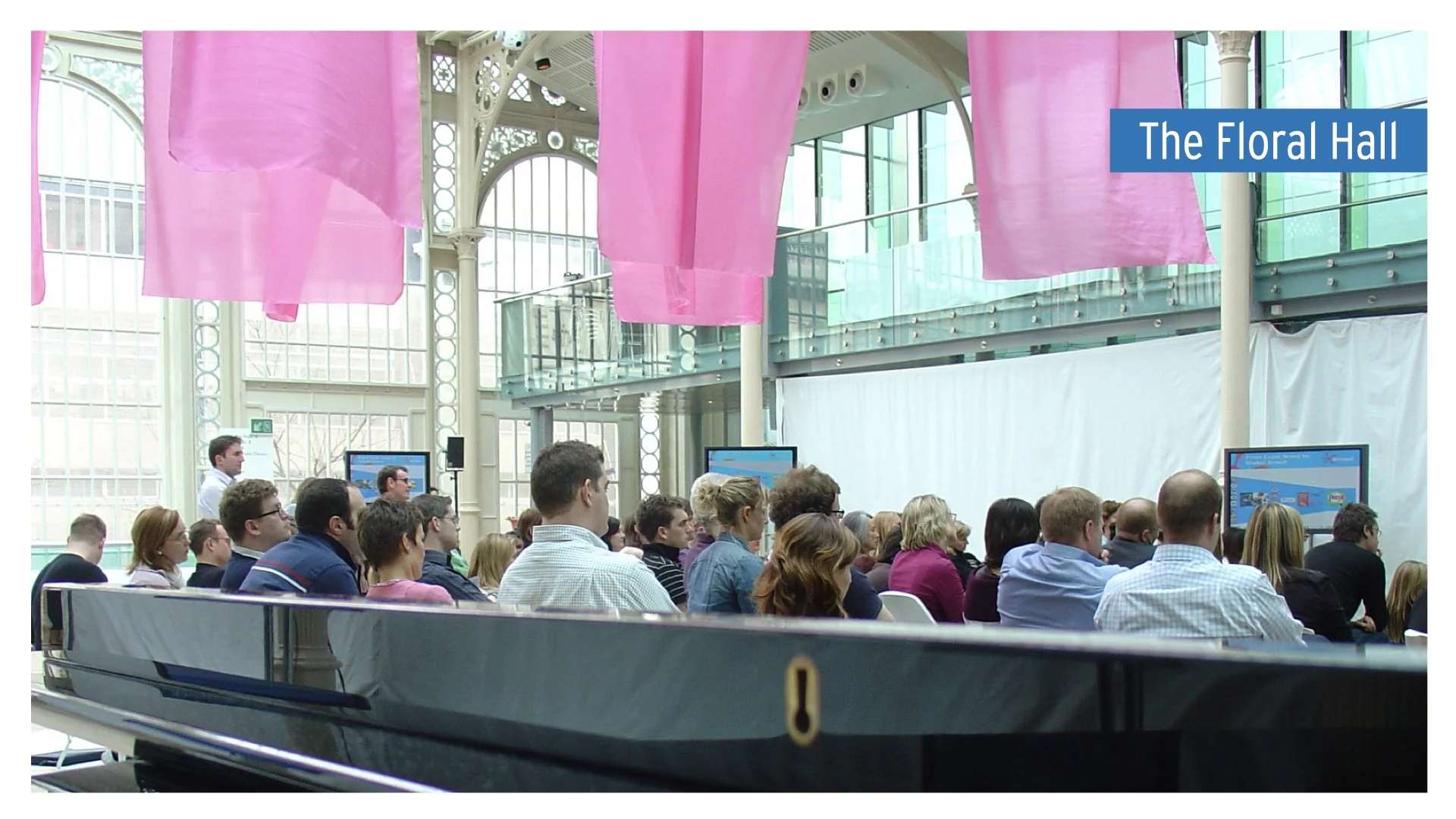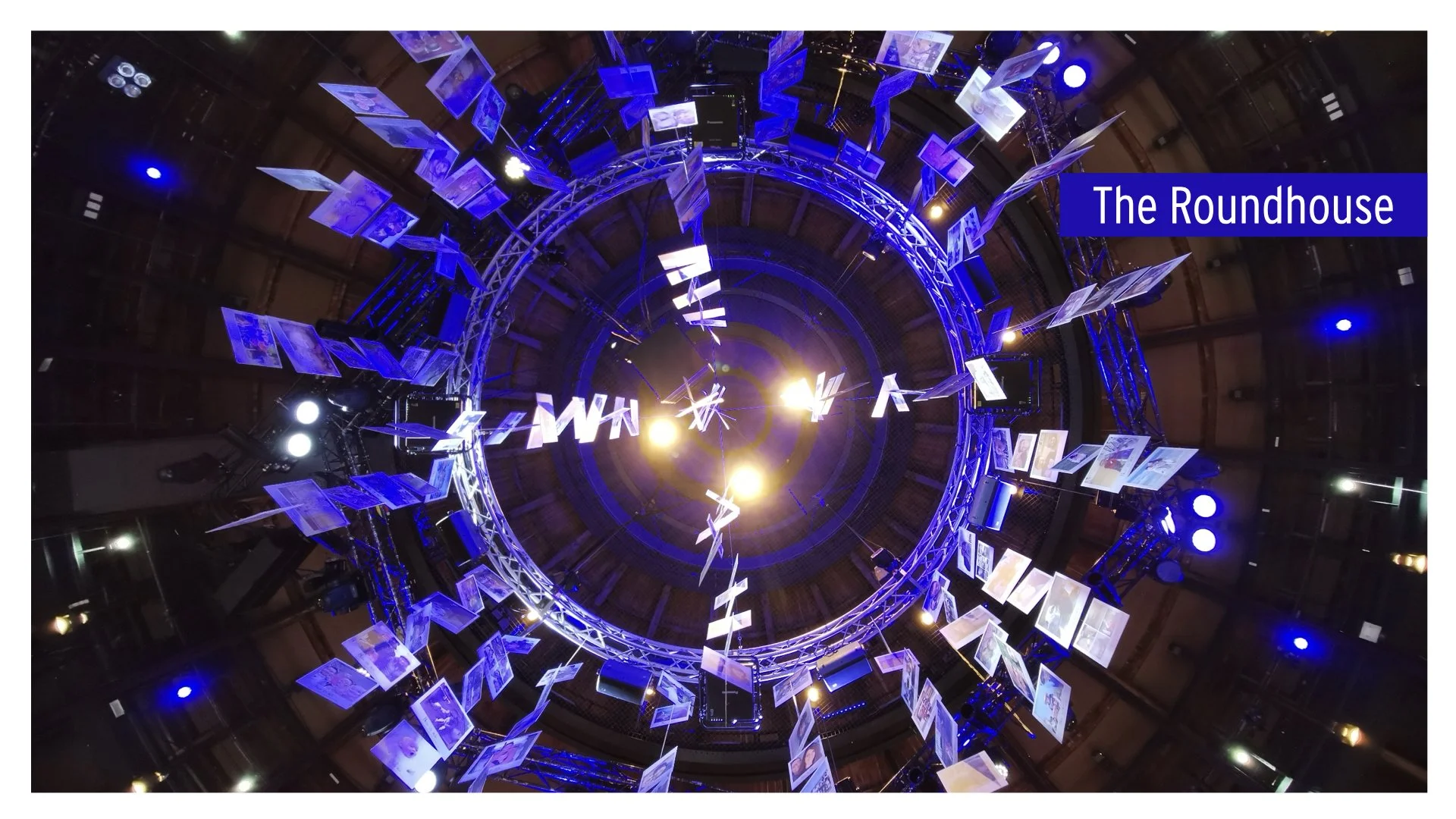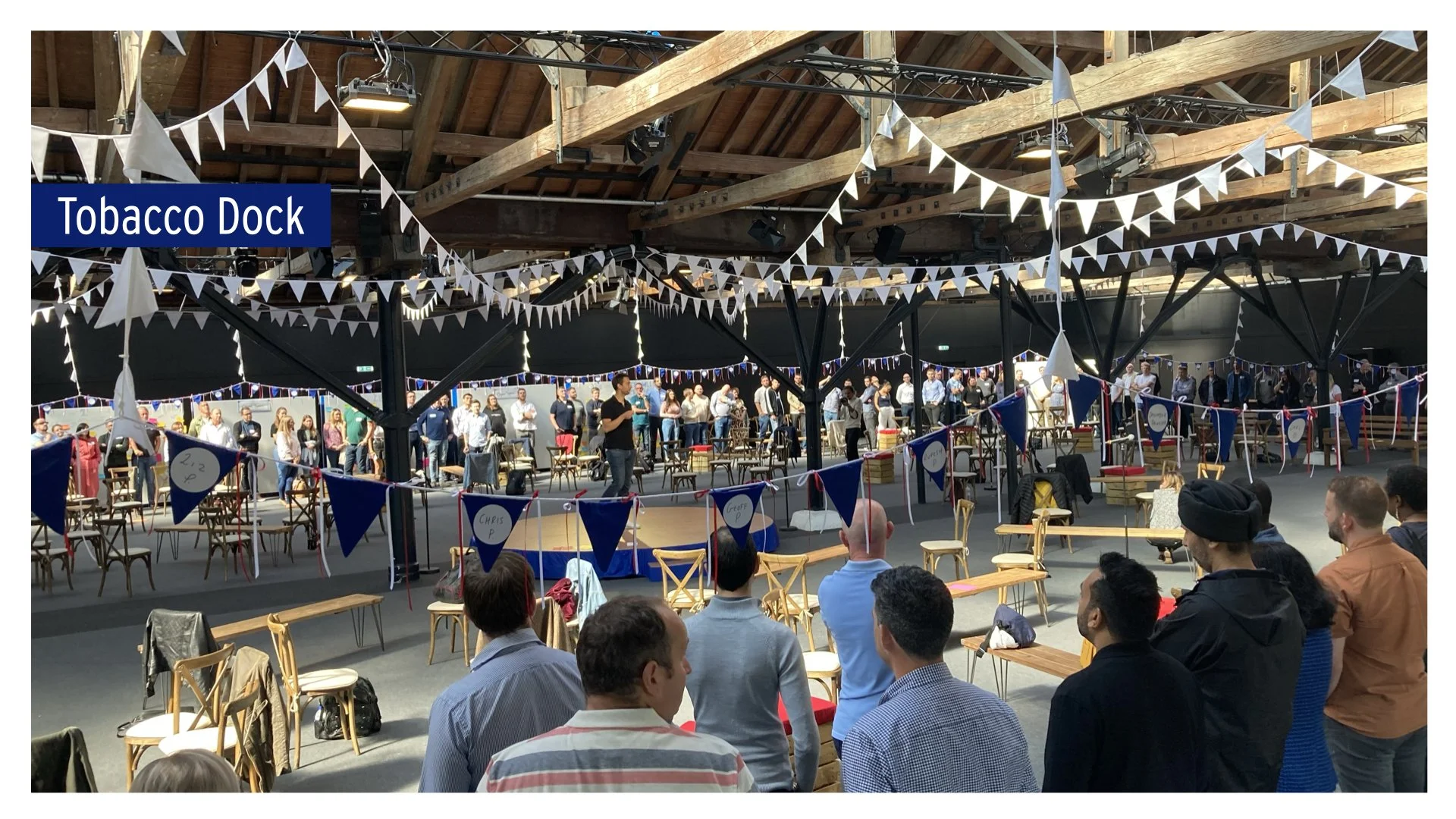Our story
How we began and became what we are today.
It all started with the Round Tables in the Spring of 2002.
Through the hazy confusion that followed 9/11, Karl located a series of people, all of whom - in one way or another - were experts in the field of having conversations when the stakes were high.
He hired La Maison Verte - a huge, slightly run down house owned by friends Teddy and Nicola in South West France - and brought together an extraordinary group of people to share their approaches to their work. Everyone said yes. Such was the mindset of the time as the numb chaos of the Twin Towers attacks evolved for many of us into a desire to ‘do something.’ And so a Lebanese Peace Negotiator, a Primary School Teacher, a Psychologist, a Cancer Surgeon, an Army Officer, an Advertising Executive and a few more besides, spoke and listened to each other for three days.
“It wasn’t just that I heard others differently.” said one of those around the table, “It was that in their presence, I heard myself differently.”
After an astonishing series of conversations, with ideas, experiences, perspectives shifted, everyone went home. Except Karl who stayed on for a day by himself to reflect on what had just happened.
“I felt excitement, energy and more than anything else just an absolute knowledge that in the Dialogue Project I had found my thing.”
Whether he could make it work as a long term venture was a whole other question. But the flame had been lit. And the questions were being asked…
In our first two years, we’d run one-off workshops for a number of companies and charities who wanted to have better conversations. We were finding our feet and beginning to define our language. Slowly, steadily our confidence and capability was growing, But we hadn’t quite taken flight yet.
Then in the Autumn of 2004, Karl sat down with Dave Lewis in Kingston. Dave had just been appointed as joint CEO of Lever Fabergé -later to become Unilever. Karl talked about his passion for dialogue and how important it was to have bolder, bigger conversations.
The idea for Braver Conversations had been born just a few weeks before Dave came into the UK business. A new boss arriving is always a tricky moment for recent intitiatives. When someone wants to make a mark in a new role as a leader, part of their brief is often to adjust or cancel some of the programmes they inherit. But Alastair Creamer and Beth-Marie Bristow had launched a brilliant programme called Catalyst that welcomed an arts-based approach to effective performance at work and it was with their support that Karl found himself sitting with Dave. We’d already started a series of sessions on conversation skills in the business. But the next stage was to create a buzz around the idea with a live and immersive ‘drop-in’ at the Penny School Gallery in Kingston.
The essential idea was that anyone could pop in and listen to edits of real people having ‘braver’ conversations. Going beyond the usual polite exchanges. Sharing uncomfortable truths. Pushing harder with good questions. Topics ranged from one friend saying to another how much they wanted them to lose weight because they cared about their health, why it’s hard to tell your boss about what’s really going on and how hard it is to talk openly about challenging topics.
What had been booked in as a 30 minute meeting, became a conversation that lasted for more than two hours. Dave talked openly about some of his experiences with powerful, authentic conversations and how transformative they’d been in his life.
Then, as he was being hastened to his next meeting, the moment came to decide whether it would go ahead.
“So how can I help?” said Dave. “Well,” said Karl, “if you really want to lead for this, the best thing I can think of is for you to record a conversation and be one of the voices that people listen to.”
A pause.
“Great. Let’s do it” replied Dave.
And so the real deal began to take shape. Braver Conversations in 2005 grew into an extensive series of multi-media events, including a double-CD given to everyone in the business (yes it was before the time of MP3’s) and the project became a benchmark for so many of the projects that followed. And all we’d really done was shone a light on what was possible. We’d named the parts. And given people in the business a license - and a language - to hold each other to higher standards of accountability when it came to communicating with each other.
The business case for better conversations had been proved. And our hunch that dialogue was so much more than a powerful tool for just a select group of specialists was becoming more and more evident.
Braver Conversations were created simply with a set of simple skills and an attitude; a desire for richer, more productive conversations that built more interesting ideas that wasted less time.
The skills needed honing of course. And they would be improved and simplified in the coming years. But the building blocks were established.
And we wanted to share them as widely as possible.
In the summer of 2005 we were invited by Tania Harrison to be part of the very first Latitude Festival.
Not having been part of a big festival before, Karl somewhat naively turned up with a suitcase on wheels, five small iPods and some recorded conversations. ‘The Listening Booth’ had been built; just. In the form of a shed from Homebase.
On the first morning of a fairly chaotic weekend (it was after all the first Latitude!) for a while no-one really found our hidden location in the woods. But then, slowly, people started to appear through the trees, looking at their maps and then at Karl and his hopeful headphones. Within a couple of hours, the audience had outgrown the shed and were sitting on blankets and camping stools in the woods, listening to some of the first raw series of conversations we’d recorded and edited.
On the final morning - a sunny Sunday - towards the end of our slot, a lean, tall, slightly worse for wear looking guy with dyed black hair dripping over his face appeared through the wood. He asked if he could have a listen and - even though Karl has started to pack up - of course he said yes, keeping a careful eye on the iPod in case his idea was to nick it. It turned out he was the Arts Editor from the Observer newspaper. And he gave us an amazing review.
We’d learnt that The Dialogue Project could become something more than just a different way of teaching people how to communicate and that the conversations we found and shared could be a source of inspiration and intrigue to just about anyone.
(We also learnt: never to judge on appearance.)
TO BE COMPLETED
The Floral Hall 2005
The venue making a difference.
In the Spring of 2020, we created an event at The Roundhouse in London. We gathered together more than 300 people in one of London’s most iconic venues. Sometimes you don’t need to do much to a venue, except play to its strengths. The purpose of this event was to bring to life for a mobile phone company two ideas. The first idea was that ‘we care for human connection’ - which went beyond the obvious commercial meaning, resonating with what made this business distinct in highly competitive industry: that they really cared about those who were isolated, lonely or unable to connect to friends, family and support. An especially poignant message given what was about to hit the world in the form of Covid-19 just a few days later. The second message was that all the talent, skill and experience they needed was in the room. So we asked everyone who was part of the company to share photos of the people they cared most about, and we created a stunning physical centre-piece that hung above us throughout the day, suspended from the centre of the Roundhouse’s roof. We started and ended the day with live music. Strategies and plans were shared. Conversations were shared. And it became a day that is still talked about in the business today. It was truly a unique gathering and one of our most ambitious and successful events to this day. Little did we know, it would be 18 months before we ever brought a lot of people together in again…
In 2021. Tobacco Dock in London. Post Covid. Coming together. Notes in flags for everyone. A designer. Original music. A storyteller. A Buddhist. (Let your light shine.) A man who had his life changed. A young woman who decided to break from her boundaries. A business about to start growing after years of stagnation.

